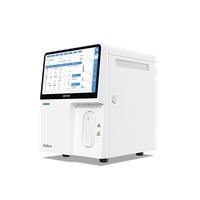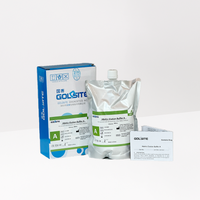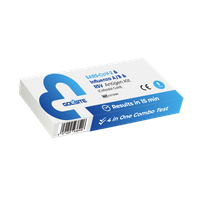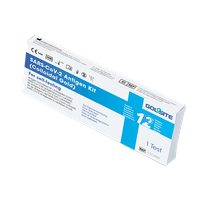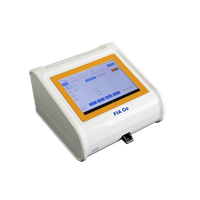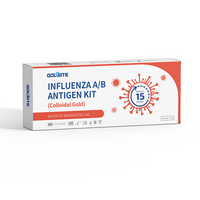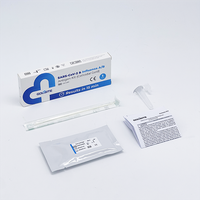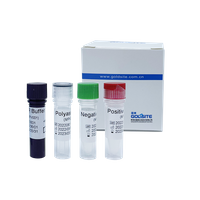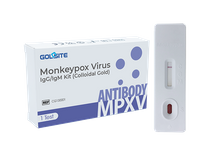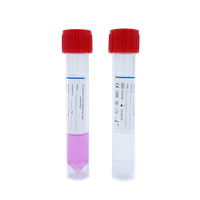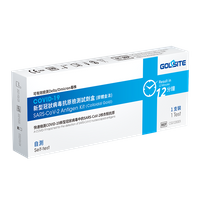- All
- Product Name
- Product Keyword
- Product Model
- Product Summary
- Product Description
- Multi Field Search

loading
GPP-100
GOLDSITE
| Availability: | |
|---|---|
Your body makes a few different types of immunoglobulin antibodies, including these:
IgA antibodies are found in the mucous membranes of the lungs, sinuses, stomach, and intestines. They're also in fluids these membranes produce, like saliva and tears, as well as in the blood.
IgG is the most common type of antibody in your blood and other body fluids. These antibodies protect you against infection by "remembering" which germs you've been exposed to before.
If those germs come back, your immune system knows to attack them. Your doctor can test for IgG to figure out whether you've been infected by certain kinds of bacteria or virus.
Your body makes IgM antibodies when you are first infected with new bacteria or other germs.
They are your body's first line of defense against infections. When your body senses an invader, your IgM level will rise for a short time. It will then begin to drop as your IgG level kicks in and increases to protect you long-term.
Your body makes IgE antibodies when it overreacts to substances that aren't harmful, such as pollen or pet dander. Your doctor will likely measure your IgE levels if you have a blood test to check for allergies
Nephelometry has become the main method for performing protein tests, measuring the turbidity of a sample to determine the level of analyte; the difference is that immunoturbidimetric tests measure the absorbance of light by the sample whereas nephelometric tests measure the light scattered at a fixed angle.
GPP-100 Specific Protein Analyzer testing provides numerous advantages, most notably it offers lower laboratory costs, lower consumable costs, no need highly trained personnel, and are able to perform a wide range of assays.
GPP-100 is a routine clinical analysers designed for hospital, small and medium lab, clinics, thus offering test consolidation; consolidation of tests on one single platform offers improved laboratory efficiency, versatility, rapid testing and cost-savings.
Parameters :hsCRP,HbA1c,mALB,D-Dimer,ASO,RF,C3,C4 etc.can be extended to more than 30 parameters.
IFCC is a leading organization in the field of Clinical Chemistry and Laboratory Medicine worldwide.
GPP-100 is a certified Specific Protein Analyzer by IFCC.
Parameters :hsCRP,HbA1c,mALB,D-Dimer,ASO,RF,C3,C4 etc.can be extended to more than 30 parameters.
GPP-100 is a Point of Care Nephelometry Specific Protein Analyzer for measuring multiple blood tests through a single analyzer. Approved and registered by many MOH worldwide.
This is a fully automatic cartridge-based analyzer for the quantitative determination of specific proteins in the blood, serum, urine samples, including HbA1c, HS-CRP, CRP, ASO, CYS-C, RF, mALB, D-Dimer, IgM, IgG, IgA, C3, C4, etc.
Point of Care Testing (POCT) is any analytical test for human performed by a healthcare professional at the point of patient care, outside of a conventional laboratory setting. Testing this way gives fast access to test results so that clinical decisions can be made immediately.
The NHS Long Term Plan highlights the importance of patients receiving care closer to home, shifting from a traditional model of hospital-based services towards a more adaptive community-based approach. As part of the Community pharmacy contractual framework agreement 2019-2024, NHS England and Improvement committed to explore point of care testing (POCT) by community pharmacists.
Best Price Best quality

Your body makes a few different types of immunoglobulin antibodies, including these:
IgA antibodies are found in the mucous membranes of the lungs, sinuses, stomach, and intestines. They're also in fluids these membranes produce, like saliva and tears, as well as in the blood.
IgG is the most common type of antibody in your blood and other body fluids. These antibodies protect you against infection by "remembering" which germs you've been exposed to before.
If those germs come back, your immune system knows to attack them. Your doctor can test for IgG to figure out whether you've been infected by certain kinds of bacteria or virus.
Your body makes IgM antibodies when you are first infected with new bacteria or other germs.
They are your body's first line of defense against infections. When your body senses an invader, your IgM level will rise for a short time. It will then begin to drop as your IgG level kicks in and increases to protect you long-term.
Your body makes IgE antibodies when it overreacts to substances that aren't harmful, such as pollen or pet dander. Your doctor will likely measure your IgE levels if you have a blood test to check for allergies
Nephelometry has become the main method for performing protein tests, measuring the turbidity of a sample to determine the level of analyte; the difference is that immunoturbidimetric tests measure the absorbance of light by the sample whereas nephelometric tests measure the light scattered at a fixed angle.
GPP-100 Specific Protein Analyzer testing provides numerous advantages, most notably it offers lower laboratory costs, lower consumable costs, no need highly trained personnel, and are able to perform a wide range of assays.
GPP-100 is a routine clinical analysers designed for hospital, small and medium lab, clinics, thus offering test consolidation; consolidation of tests on one single platform offers improved laboratory efficiency, versatility, rapid testing and cost-savings.
Parameters :hsCRP,HbA1c,mALB,D-Dimer,ASO,RF,C3,C4 etc.can be extended to more than 30 parameters.
IFCC is a leading organization in the field of Clinical Chemistry and Laboratory Medicine worldwide.
GPP-100 is a certified Specific Protein Analyzer by IFCC.
Parameters :hsCRP,HbA1c,mALB,D-Dimer,ASO,RF,C3,C4 etc.can be extended to more than 30 parameters.
GPP-100 is a Point of Care Nephelometry Specific Protein Analyzer for measuring multiple blood tests through a single analyzer. Approved and registered by many MOH worldwide.
This is a fully automatic cartridge-based analyzer for the quantitative determination of specific proteins in the blood, serum, urine samples, including HbA1c, HS-CRP, CRP, ASO, CYS-C, RF, mALB, D-Dimer, IgM, IgG, IgA, C3, C4, etc.
Point of Care Testing (POCT) is any analytical test for human performed by a healthcare professional at the point of patient care, outside of a conventional laboratory setting. Testing this way gives fast access to test results so that clinical decisions can be made immediately.
The NHS Long Term Plan highlights the importance of patients receiving care closer to home, shifting from a traditional model of hospital-based services towards a more adaptive community-based approach. As part of the Community pharmacy contractual framework agreement 2019-2024, NHS England and Improvement committed to explore point of care testing (POCT) by community pharmacists.
Best Price Best quality

We offer

